Photo Essay: Energy Week at Duke Drives Dialogue About Clean Energy Future
On November 11-14, hundreds of Duke community members—along with Triangle-area professionals and students from far-flung universities—learned and networked during the ninth annual Energy Week at Duke. Dozens of undergraduate and graduate students from diverse degree programs organized this year’s events to drive campus dialogue about accelerating the energy transition.
Power Trip: Kempower Site Visit and Panel Discussion

The Southeast's influence on the nation's clean energy transition is growing as employers move into the region, creating jobs and contributing to the economy. To see this growth firsthand, nearly forty Duke students kicked off Energy Week with a site visit and panel discussion at Kempower, a global company that recently opened a state-of-the-art EV charger manufacturing facility in Durham.
Opportunities and Challenges of Small Modular Nuclear Reactor (SMR) Development
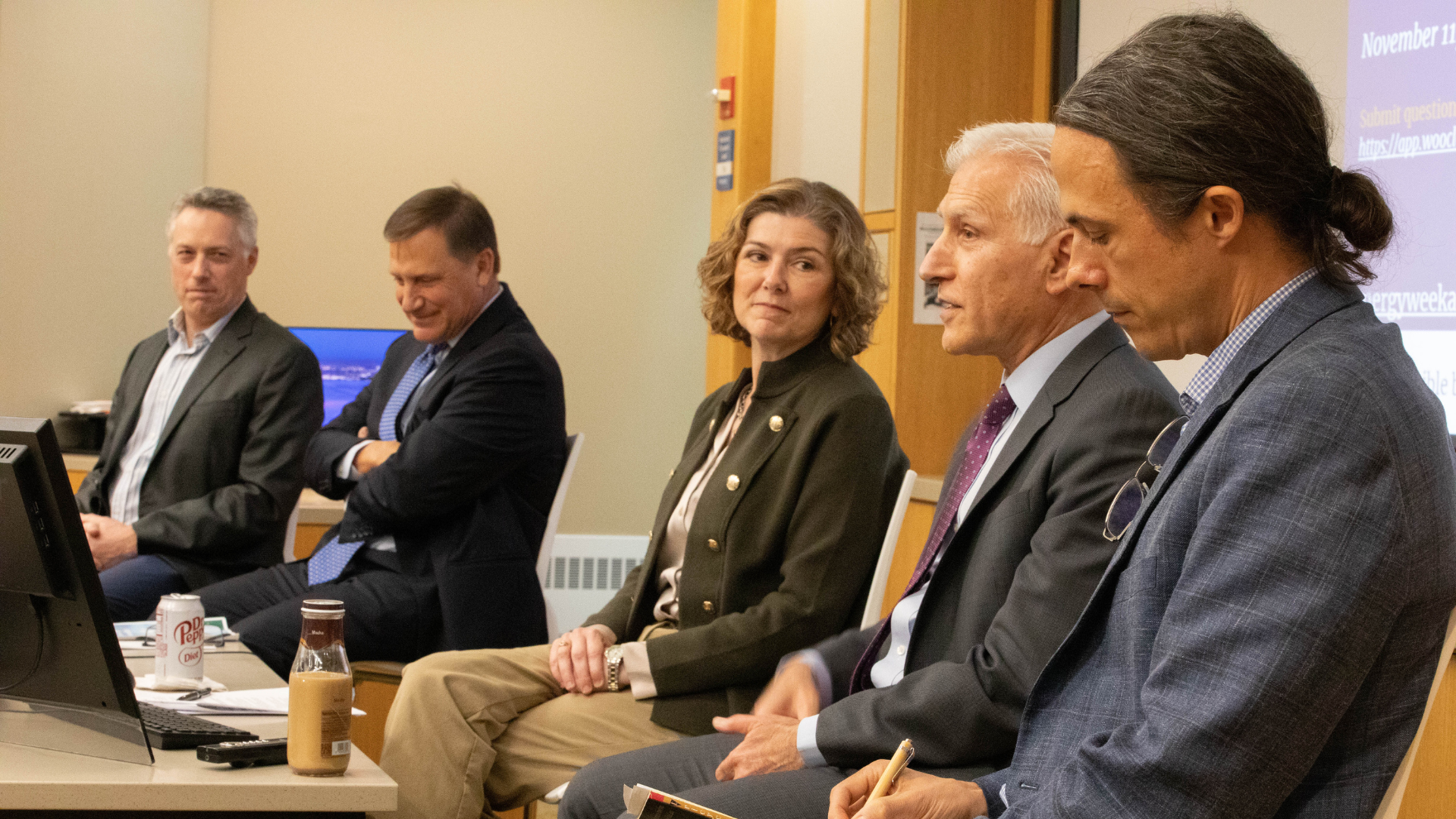
During a panel discussion on the development of small modular nuclear reactors, experts analyzed opportunities and challenges the industry faces. From left to right: Jack Sweeter (GE Hitachi Nuclear Energy), Chris Vlahoplus (DOE Loans Program Office), Rounette Nader (Duke Energy), Alireza Haghighat (Virginia Tech), Chris Wedding (Entrepreneurs for Impact and Fuqua School of Business).
Alireza Haghighat, director of nuclear engineering at Virginia Tech, on the need for small modular nuclear reactor development
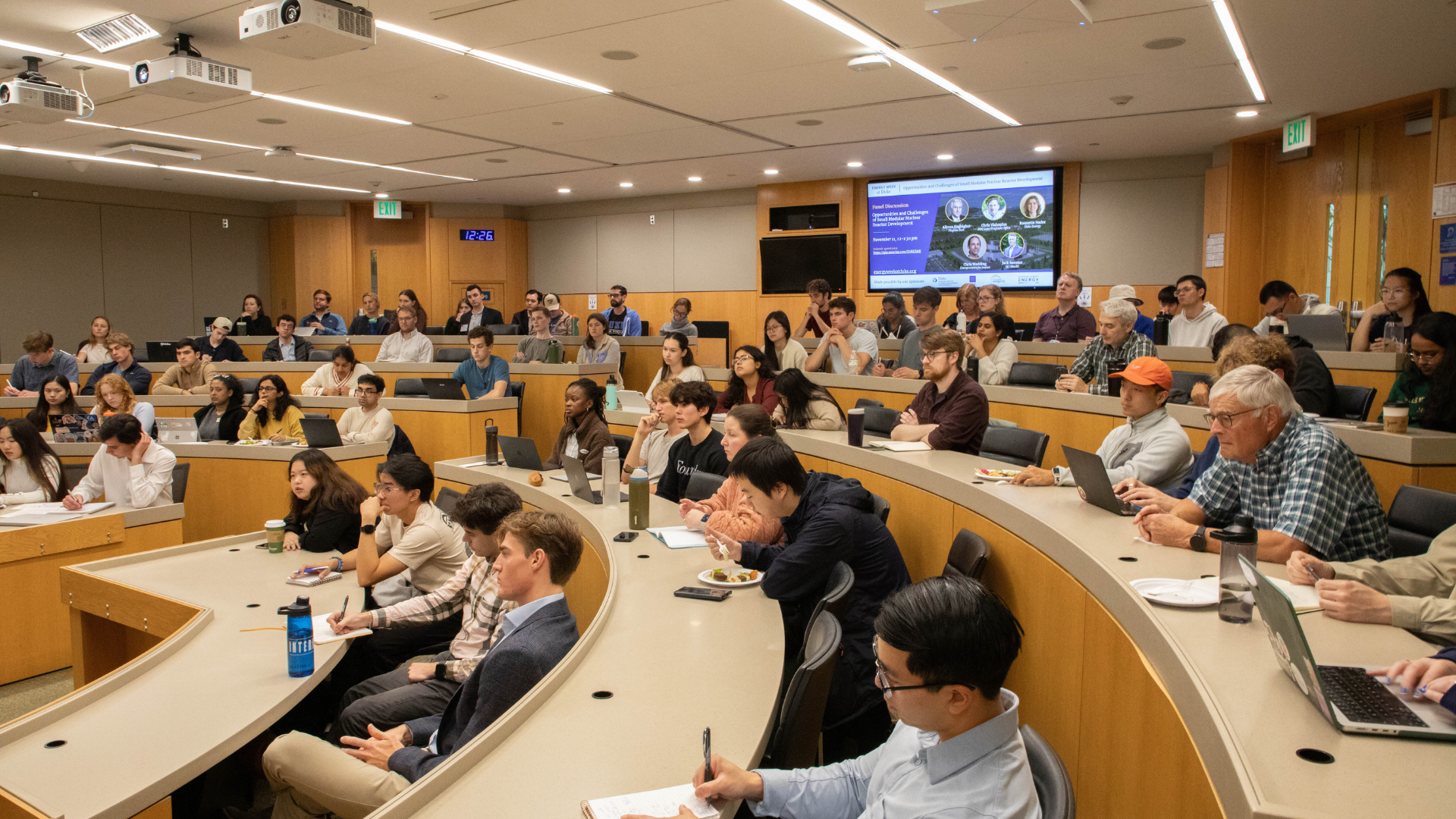
Ryan Perez, who is pursuing a juris doctorate and master of law degree in international and comparative law at Duke Law School
Community Dinner: Fueling Dialogue on the Southeast’s Energy Future
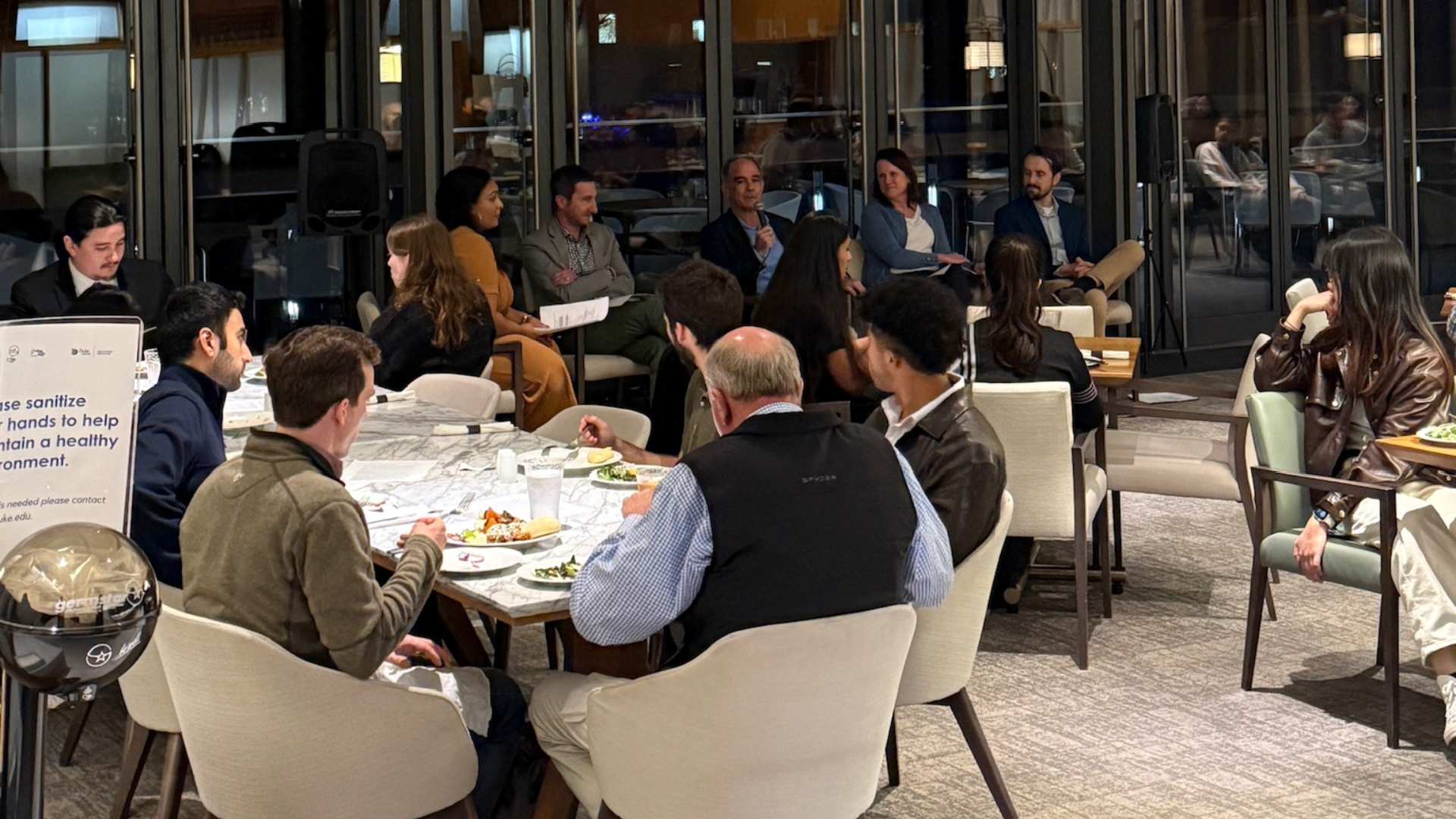
At a community dinner, a panel of experts kicked off a discussion of the Southeast’s energy future, which continued in conversations among students and special guests at individual tables. Panelists included Eric Fins (Grove Climate Group), Brian Murray (Nicholas Institute for Energy, Environment & Sustainability), Jennifer Weiss (North Carolina Clean Energy Fund), and Matt Abele (North Carolina Sustainable Energy Association).
Matt Abele, executive director, North Carolina Sustainable Energy Association
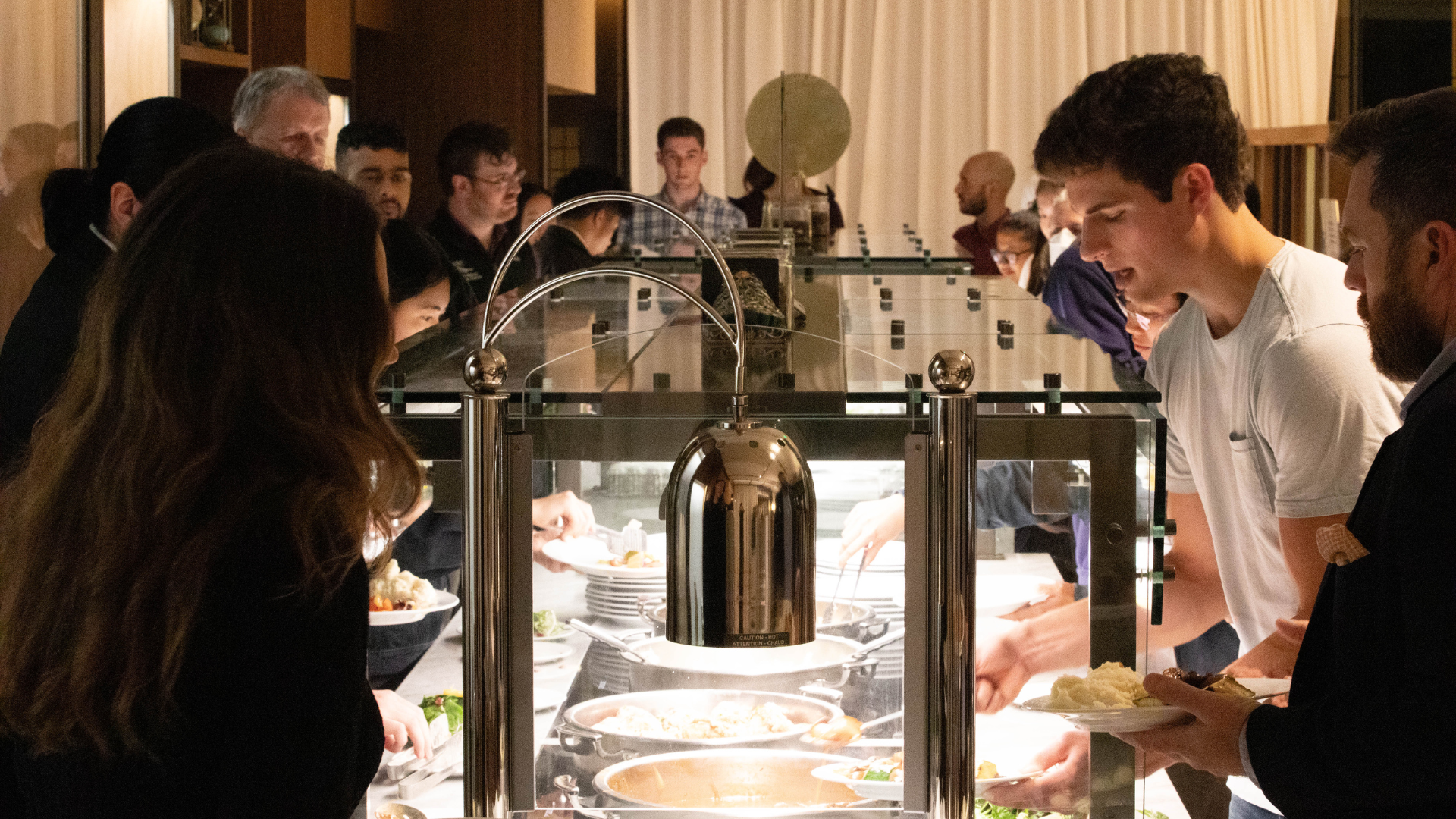
Eva Brungard, who is pursuing a master’s degree in public policy with an environment and energy concentration at the Sanford School of Public Policy
Energy in Emerging Markets Case Competition

At the twelfth annual Energy in Emerging Markets Case Competition, graduate student teams from around the world proposed innovative business-based solutions to a real problem faced by 2024 partner Zembo, a Ugandan e-mobility company. Teams vied for $15,000 in prizes sponsored by the James E. Rogers Energy Access Project at Duke.
First place team member Aakanksha Maheshwari, who is pursuing a master of science degree in business analytics at Syracuse University’s Whitman School of Management (via LinkedIn)
Energizing Tomorrow: Innovation Showcase at Energy Week

More than one hundred students, cleantech professionals, and investors attended the Innovation Showcase, where seven companies, five Design Climate teams, and four other Duke student groups highlighted cleantech products and projects. Pictured: Members of a Design Climate team (left to right: Mason Ibrahim, Rongyan Song, Ainsley Pollock) explain their project. The event was featured in the Duke Research Blog and WRAL.
Judy Ledlee, executive director of Duke’s Design Climate incubator
Duke University Energy Conference: Moving from Vision to Action Amid Uncertainty
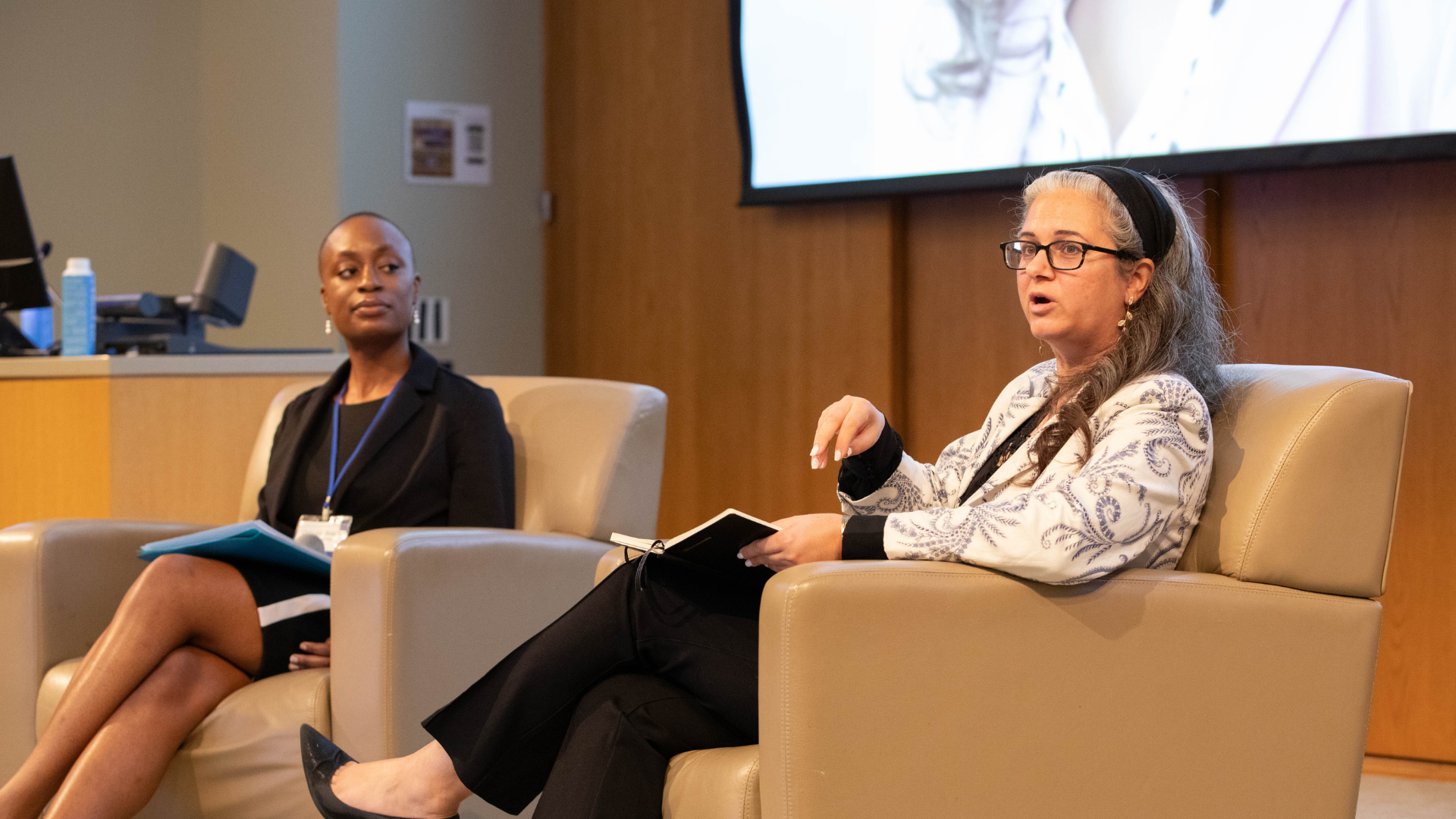
The 16th annual Duke University Energy Conference at the Fuqua School of Business included keynote remarks by Brian Janous (Cloverleaf Infrastructure) and Noël Bakhtian (Bezos Earth Fund), pictured above on right with conference co-chair Uzo Biosah.
Noël Bakhtian, director of tech acceleration at Bezos Earth Fund, on the intersection of entrepreneurship, community engagement, and technical expertise

Organized by the Duke MBA Energy Club, the conference also included a friendly debate on hot-button energy topics, a lunchtime company exposition, and several panel discussions.
Conference co-chair Uzo Biosah, who is pursuing a master’s degree in business administration at the Fuqua School of Business and a master’s degree in public policy at the Sanford School of Public Policy

Katie Kross, managing director, Center for Energy, Development, and the Global Environment (EDGE) at the Fuqua School of Business (pictured at top right, hugging alumna Jenna Weiner, MEM/MBA ’19, as Alexander Szerszen, MBA ’19, looks on)
Solar Development and Challenges for Communities in North Carolina

Representatives of local nonprofits, solar development, and the state utilities commission gathered for a conversation on the challenges and opportunities for solar development in North Carolina and beyond. Pictured, left to right: Moderator Nico Johnson (SunCast Media) and panelists Matt Abele (North Carolina Sustainable Energy Association), Reginald Bynum, Jr. (Center for Energy Education), Carson Harkrader (Carolina Solar), and Jeff Hughes (North Carolina Utilities Commission).
Reginald Bynum, Jr., director of community outreach at the Center for Energy Education, on how solar developers should engage with communities
Symposium on Critical Resources, Minerals, and Materials Joint Efforts – (SCRiMMaJE)

This year’s Energy Week included one faculty-organized event: the Symposium Critical Resources, Minerals, and Materials Joint Efforts addressed factors involved in producing key clean energy technologies. Duke University, the National Security Innovation Network, and the US Geological Survey co-hosted the event. Pictured: Toddi Steelman, vice president and vice provost for climate and sustainability at Duke, introduces Jennifer Mundt, assistant secretary for clean energy workforce development at the North Carolina Department of Commerce.
Congratulations to the 2024 Energy Week Organizers!

Energy Week was the collective effort of dozens of undergraduate and graduate students (some pictured here) in degree programs at the Fuqua School of Business, Nicholas School of the Environment, Pratt School of Engineering, Sanford School of Public Policy, and Trinity College of Arts & Sciences. Sanford graduate student Madeleine Fox (top row, fifth from left) and Trinity undergraduate Tyler Ratcliffe (top row, far right) served as Energy Week co-leads.
Energy Week student organizers are advised and supported by the Nicholas Institute for Energy, Environment & Sustainability, the EDGE Center at the Fuqua School of Business, and the James E. Rogers Energy Access Project. Energy Week also receives financial support from the Office of Climate and Sustainability and Alumni Engagement and Development. The event series is aligned with the Duke Climate Commitment, which unites the university’s education, research, operations, and public service missions to address climate challenges.
Tyler Ratcliffe, Energy Week co-lead and a third-year undergraduate studying economics and environmental science
